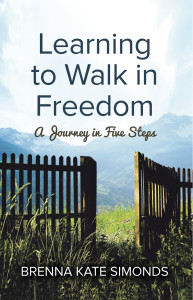Driving to church on Sunday, I heard part of this sermon (Aug. 5th, 2012) based on these verses from Genesis 25:
Once when Jacob was cooking some stew, Esau came in from the open country, famished. He said to Jacob, “Quick, let me have some of that red stew! I’m famished!” (That is why he was also called Edom.)
Jacob replied, “First sell me your birthright. ”
“Look, I am about to die,” Esau said. “What good is the birthright to me?”
But Jacob said, “Swear to me first.” So he swore an oath to him, selling his birthright to Jacob.
Then Jacob gave Esau some bread and some lentil stew. He ate and drank, and then got up and left.
So Esau despised his birthright.
 red lentils
red lentils
This dramatic and fairly well-known story describes the dynamics between twin brothers, Esau and Jacob, sons of Isaac and Rebekah. It was a volitile situation even from the womb, the Bible describing how the babies “jostled each other” within Rebekah. Esau was born first, but, not to be outdone, Jacob came out grasping Esau’s heel.
Yet Esau was still the first born.
We don’t have that many parallels today in Western culture as it pertains to birthrights. In Jewish culture, the firstborn child was given certain rights, privileges and inheritance simply based on the fact that he was born first. It is in Genesis and the story of Jacob & Esau where the rights of the firstborn are first talked about.
As believers, we have all been adopted into God’s family, and we are all His favorites. As His children, there are certains rights and privileges that God has given to us, promises He says will be fulfilled if we follow and trust in Him, surrendering our entire lives over to His lordship.
As I listened to the sermon, I couldn’t help but think of my struggle with overeating.
Am I selling my birthright for a plate of food? I wrote a poem that was posted 2 days ago if you missed it.
Alicia Britt Chole dissects the temptation of Jesus in her book, anonymous. You can read a Biblical account here.
Jesus has been fasting for 40 days and was genuinely hungry. Satan tells Him to turn stones into bread.
What would be wrong with that? Eating is not a sin, after all. What would be the harm in having a bite of bread?
From anonymous, pg. 65:
I find it noteworthy that Satan did not suggest that Jesus run into town and steal some food – that would have been a blatant violation of God’s commendments. But eating? Food in itself is not sinful. And here is where Satan’s lures can be deceptive. This layer was not about what Jesus would eat as much as it was about when Jesus would eat. Would he obey Father God even when obedience meant delayed satisfaction of legitimate needs?
In the layer of appetite, we witness Satan’s skillful use of a most effective lure: immediate gratification.
Imagine where we’d all be if Jesus sold His birthright for a plate of food.
Your issue may not be with food. It may be with gossip, crass talk, pornography, stealing, or subtle lying. Those could all be considered “false foods.”
What are you selling your birthright for a plate of? What false food do you run to in order to try and satisfy legitimate needs in illegitimate ways?
It is not likely that Esau was literally going to die of hunger, as he dramatically stated. Yet he was genuinely hungry.
Often when I run to the cabinets, I too am genuinely hungry.
But my hunger is not for food.
I desire comfort, escape. I am tired, lonely, bored, in pain, and am looking for a way to forget, to flee those feelings.
My need is legitimate, but it cannot be meet with food. My need is for God, spiritual strength, companionship, laughter, joy, peace and rest.
Think for a minute.
Are we despising our birthright, as Esau did, because we choose to run to false food instead of Him?
Are we missing out on the fulfillment of God’s promises – His presence, His provision, our inheritance as His child – in favor of more immediate gratification?
Is the pay-off, the “reward” really worth it?







